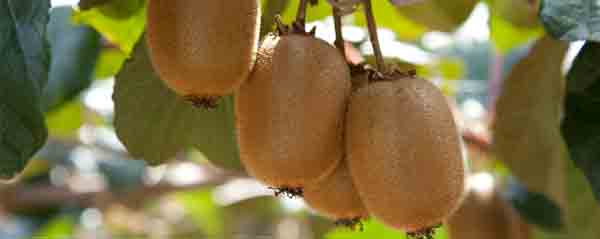Video: Fermented Tomato Ketchup
Ready to try something new? Watch Emma's recipe video for a delicious Fermented Tomato Ketchup!
Get the recipeThese days we are bombarded with adverts for expensive face creams that promise to help us defy age and give us a complexion glowing with health, despite the fact that many of these creams are chock full of chemicals that can easily upset sensitive skin. The skin is the largest organ of the body and is constantly growing new cells as old ones are shed, so it makes sense that a diet that includes foods packed full of nutrients to help nourish new cell growth, is the best way to give your skin a healthy glow and help prevent wrinkles from forming.

Although not technically a food, experts say we should be drinking between 1.5-2 litres of water every day. However, hardly any of us reach this target which can have a visible effect on our skin leading to puffiness and dark circles under our eyes. This problem can also be exacerbated if, instead of reaching for water, you’re queuing up at the coffee machine as caffeine can not only have a diuretic effect, it can also drain your stores of essential nutrients such as magnesium, iron and certain B vitamins!
Keeping a water bottle handy and sipping it throughout the day rather than trying to drink large amounts at once can make it easier to increase your intake. Another bonus is that you should feel less hungry, as many of us mistake thirst for hunger and reach for the biscuit tin when we should be reaching for the water bottle.
Don't like the taste of plain water? Well, herbal and fruit teas make excellent substitutes and all add up to that litre and a half. If you're drinking more than 3-4 cups of coffee a day, try swapping one or two of them with a coffee substitute such as our Bambu®, which is free from caffeine and 100% natural. This tasty instant drink is the ideal coffee alternative made with chicory, acorns and figs and can be enjoyed as a hot drink, as well as in a milkshake or smoothie.
My top tip: If you really can't kick the caffeine? Swap regular tea for white or green tea, both are packed full of antioxidants, and as an added bonus, can boost metabolism if you're trying to lose a few pounds.

Kiwis can be extremely beneficial for your skin as they contain vitamin C, a powerful antioxidant which can help to protect skin cells from damage caused by nasty, scavenging free radicals. Free radicals can come from a variety of sources, including smoking, pollution and even sunlight, so they can be difficult to avoid.
The vitamin C content in kiwis can also help to boost your production of collagen, a key structural protein which can promote elasticity and prevent wrinkles. Unfortunately, as we age our production of collagen can fall so a kiwi or two could be particularly useful if you’re looking to tackle the signs of premature ageing or even if you’re looking to boost the healthy process of certain blemishes!
My top tip: We know that eating fruit and veg is good for us, but eating a "rainbow" of fruit and vegetables are especially good for our skin. That’s why, if kiwis don’t appeal to you, you could try other vitamin C-rich foods like blueberries, strawberries, grapes, apples or papaya. However, if life gets in the way and I'm unable to access as much fruit and veg as I like, I top up with A.Vogel's Nature C made from acerola cherry and other fruits rich in natural vitamin C.

When it comes to keeping your skin healthy, it’s extremely important that you consider your digestive system. If your normal exit route for toxins to leave the body is blocked, then toxins try to leave the body via the skin in the form of spots. For me personally, an outbreak of spots is not my favourite way of reliving my teenage years!
The exit route I am talking about is obviously your bowel. Drinking plenty of water and getting enough fibre in your diet should get things moving regularly, meaning that toxins are eliminated before they build up in your body. Bananas are an excellent source of soluble fibre, a type of fibre that helps to absorb water in your gut, slowing down your digestion which can help to balance your blood sugar levels, meaning you’ll feel fuller for longer.
My top tip: Bananas aren't the only source of fibre out there – other fruits such as pears and raspberries or even complex forms of carbohydrates like oats are brimming with fibre.

Vitamin E, similar to vitamin C, has potent antioxidant properties which can help to protect your skin from sources of free-radical damage, such as UV radiation. Avocados contain plenty of this nutrient, plus, they also have another benefit – they’re rich in essential fatty acids, including omega-3! If you’ve read my blog, ‘7 great foods for dry skin’ then you’ll already be aware of just how important fatty acids are for your skin.
The right fatty acids, like omega-3 fatty acids, can help to keep your skin hydrated and moisturised which, if you suffer from a skin condition such as eczema, can be extremely important. Omega-3 can even help to strengthen your epidermis, making it more difficult for harmful bacteria and pathogens to penetrate your skin.
My top tip: While avocadoes can provide a decent amount of ALA, a specific omega-3 fatty acid, they don’t offer much in the way of DHA or EPA, the omega-3 fatty acids normally associated with the most health benefits. That’s why, if you’re trying to source some vegan-friendly DHA and EPA, you could try a supplement that is derived from a plant-based source of DHA & EPA!

Sunflower seeds are the ultimate snack as they contain plentiful amounts of vitamin E, magnesium and selenium. Selenium is of particular interest here as this mineral often gets overlooked which is a real shame! Not only can selenium help to protect your skin against age spots and sun damage, but it’s also considered to be extremely beneficial for acne sufferers, helping to relieve clogged pores and treat symptoms.
My top tip: Your body only needs very small amounts of selenium each day and this nutrient is actually found in quite a few foods already mentioned on this list, including bananas and avocadoes. However, other sources may include Brazil nuts, oily fish, lentils and spinach.
By following some of the hints above you should be giving your body everything it needs for great skin, but remember it can take six weeks for the cells being made today to make it to the surface, so have patience and the changes you have made will reap rewards.
(Originally published 2/7/15, updated 13/12/18)
 Looking for our products in a store near you?
Looking for our products in a store near you?
Not sure whether your favourite health food store sells our products?
To find your local independent store selling our products, just type your postcode below.

Ready to try something new? Watch Emma's recipe video for a delicious Fermented Tomato Ketchup!
Get the recipeYou've probably heard all the fuss about superfoods, but what does this mean, and what foods count as superfoods?
Find out nowCarbohydrates have a bad reputation, but eating the right kinds can actually be great for weight management!
Find out more about carbohydrates and weight managementIs 10 portions of fruit and vegetables daily really achievable? Our nutritionist Emma Thornton tells us her thoughts.
Learn moreOur Herbamare combines herbs and vegetables with a little sea salt to create a delicious, healthy seasoning for any dish!
Find out moreThe 8 principles of Alfred VogelNature is just about the best thing we’ve got!